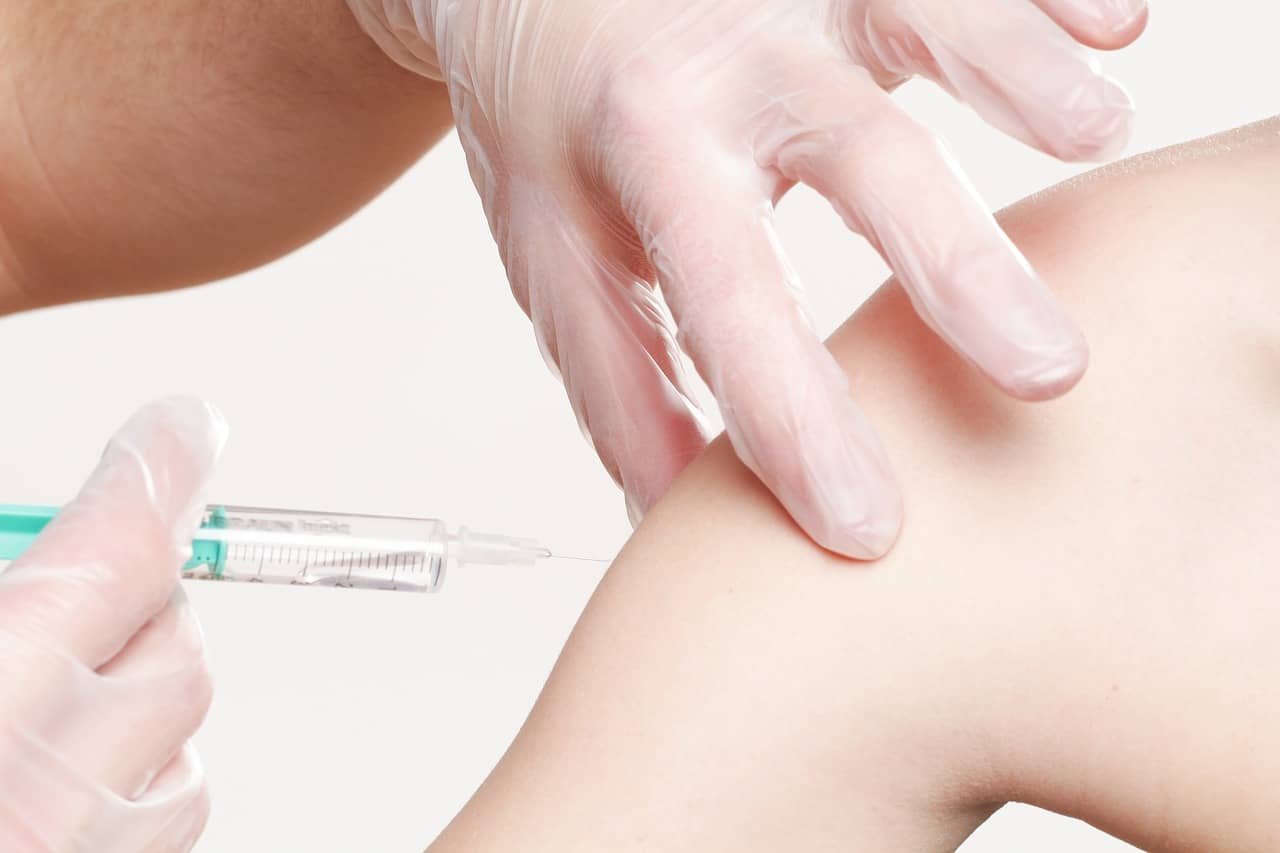Ask Dr Michelle: Should my children get the HPV vaccine?

In my many years working as a General Practitioner, I have spent time looking after all members of the family – parents, babies, toddlers and teenagers alike – listening to their worries about health, safety and happiness, both for today and for the future. I have found that the subject of vaccinations is often a sensitive one and can provoke strong opinions. Especially when there is a ‘new kid on the block’.
HPV stands for the Human Papilloma Virus. So, the HPV vaccine helps to protect against this virus. The vaccine was first rolled out as part of the Swiss national vaccination schedule in 2007, initially just being offered to girls and young women. Since 2015, it has also been offered to boys and young men. But why is this vaccine and protection from HPV needed?
The Facts
There are over 100 different types of HPV that can infect different parts of the body. Some HPV types cause skin warts, others cause verrucae on the feet and 40 or so types of HPV can infect the genital skin and can be passed on through sexual contact.
In fact, HPV is the most common sexually transmitted infection in the world. Around 70% of sexually active people will contract HPV at some point in their lives, most between the ages of 16 and 25. The majority don’t know that they’ve had it. They don’t have any genital warts or specific symptoms but they are still contagious and can pass the virus on to others. In 90% of people, the infection will clear spontaneously over the course of 2 years. However, in some, ‘high risk’ types of HPV persist in the body. Over time, they can be responsible for pre-cancerous changes in the cells of the cervix (neck of the womb), the anus, the penis, the vagina, the vulva and the mouth. Untreated, cancer may eventually develop from these cells.
Cervical cancer is the second most common type of cancer in women in Switzerland behind breast cancer. It is estimated that 6% of women will develop pre-cancerous changes in the cells of their cervix over the course of their lifetime and 1% will develop cancer.
Two Types of HPV
There are two particular HPV types that are responsible for around 70% of cervical cancers: HPV types 16 and 18. These same two HPV types are also responsible for 80% of all anal cancers.
Cancers aside, around 10% of people will develop genital warts in their lifetime. Two other types of HPV – types 6 and 11 – cause around 90% of genital warts.
It is because of this causal relationship between HPV and various cancers, particularly cervical cancer, as well as the link with genital warts, that HPV vaccination is so important. In Switzerland, it is recommended as a basic vaccination for girls between the ages of 11 and 14. The idea is that girls are protected before they become sexually active. However, ‘catch up’ vaccination may also be useful for young women between the ages of 15 and 26. Even if they are already sexually active.
Men are less likely than women to develop HPV-associated cancers but are just as likely as women to develop genital warts. The HPV vaccine is now also offered to all males in Switzerland between the ages of 11 and 26 wishing to have optimal protection against important types of HPV.
Two Types of Vaccine
There are two different vaccines available. Both protect against the cervical and anal cancers caused by HPV types 16 and 18. One also protects against genital warts caused by HPV types 6 and 11. For boys and young men, it is the latter that is recommended.
Both vaccines are generally very well tolerated with little in the way of side effects. Mild swelling and redness at the injection site being the most common. Other side effects including headache and fever are less likely and allergic reactions very rare.
Each canton in Switzerland is responsible for organising its own HPV programme. Provided it is done through this, vaccination is reimbursed through the obligatory health insurance. The vaccine is usually offered by the school health doctors and nurses in Swiss state schools. In Swiss international schools, speak to the School Nurse, or if there is no School Nurse, your doctor or paediatrician. In that way, you can find out more about how the vaccination programme works in your area.
Dr Michelle Wright is a British-trained General Practitioner and Executive Director of HealthFirst, providing dynamic First Aid Training and Health Education in English throughout Switzerland (www.healthfirst.ch). She also has a regular radio show about health on World Radio Switzerland (www.worldradio.ch).
More from International School Parent
Find more articles like this here: www.internationalschoolparent.com/articles/
Want to write for us? If so, you can submit an article for consideration here: www.internationalschoolparent.submittable.com
